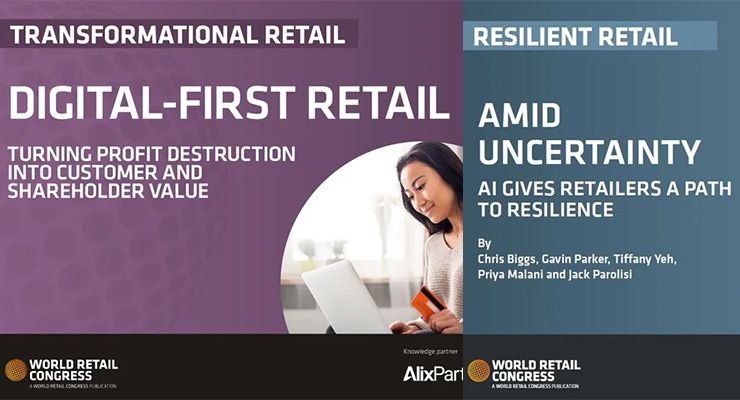The global consulting firm AlixPartners identified in their “Digital-First Retail: Turning Profit Destruction into Customer and Shareholder Value” report that 63% of retailers expect to spend more on digital investments in 2023 compared with 2022. However, more actions are needed to profitably evolve in today´s world of tech-savvy consumers.
As part of the report analysis, AlixPartners examined why retailers are struggling with digital efficiency and how they can shift from a traditional mindset to becoming a Digital-First Retail (DFR) leader. Key points include retailers spending big but inefficiently on digital; digital profitability not being understood; and a lack of transparency and common KPIs.
Globally, retailers spent 181 billion dollars on retail technology and digital improvements in 2022, according to the technology research firm Gartner. Despite this spending, additional AlixPartners research carried out among 150 global retailers has revealed that only 24% of retail executives think their company has above-average digital capabilities and just 36% of executives think their digital teams have the capabilities to meet their companies’ digital strategy needs.
The report firmly states that DFR is the answer to how to profitably evolve — taking the positive attributes of successful digitally native retailers, including agility and adaptability, and adopting them for traditionally store-led enterprises. As such, integrating AI is said to have a lot of potential.
“Coming out of three unprecedented years shaped by the pandemic, retail has gone from accommodating a massive acceleration of online sales — to the detriment of stores — to a period of resurgence in store-based retailing and a slowing of online growth. But what is clear is that there is no status quo in this new reality”, says Ian McGarrigle, chairman of the World Retail Congress.
As Boston Consulting Group and WRC reveal in their joint report “Consumer Confidence, Rising Costs, and Supply Chain Volatility – Top Concerns for Retail Leaders in 2023”, most retailers are not addressing concerns using long-term solutions like AI to improve resilience and structural advantage. For example, outside of Asia, most retailers were neglecting AI as a tool to provide a more personalized shopping experience to help overcome declining consumer spending.
There is a relatively untapped opportunity for retailers to embed AI in these solutions, as well as in their overall supply chain strategy to better understand and address the root causes of volatility from producer to customer. Combined with the ability to simulate and optimize various scenarios, these AI-enabled insights can help retailers be more flexible and predict needs more accurately over the long term while being proactive about supply and demand volatility in the near term.
“The new, post-pandemic retail environment is more challenging, complex, and competitive than before,” says Tiffany Yeh, BCG managing director and partner and coauthor of the report. “The vast majority of retailers are overlooking an opportunity to embrace AI-powered solutions. It is now a matter of acting today to harness this advantage to drive the business into the future.”







